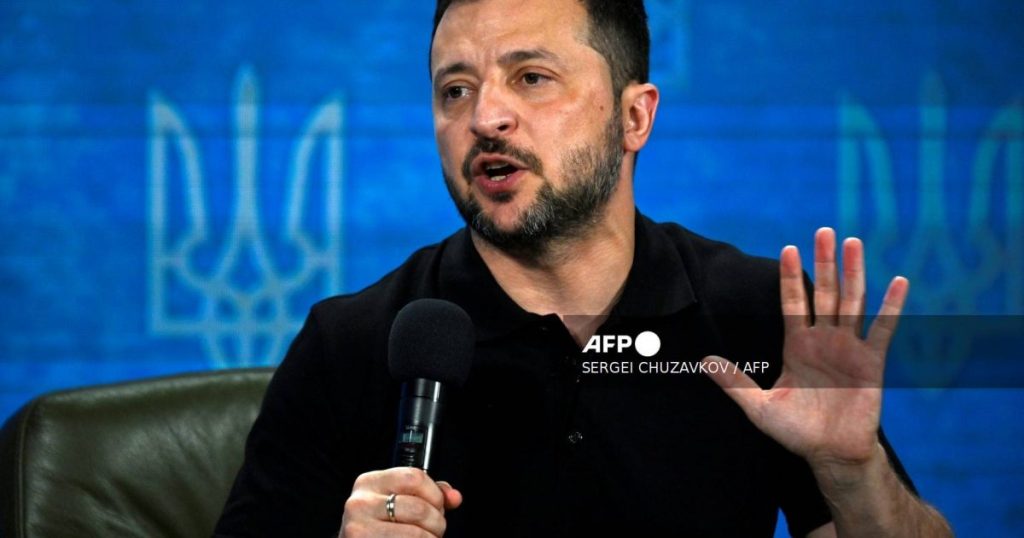A Papal Invitation and a Plea for Peace: Zelensky’s Phone Call with Pope Leo XIV
In a significant diplomatic outreach, Ukrainian President Volodymyr Zelensky initiated contact with the newly installed Pope Leo XIV, extending an invitation for a papal visit to Ukraine. This invitation, conveyed during their first phone call, holds profound symbolic weight, signifying Ukraine’s desire for spiritual solace and international support amidst the ongoing conflict. Zelensky expressed his belief that a visit from the pontiff would instill hope not only within the religious community but also across the entire Ukrainian populace, a nation grappling with the devastating consequences of war.
Beyond the symbolic gesture of the invitation, the phone call addressed critical issues plaguing Ukraine, including the plight of Ukrainian children forcibly deported to Russia. Zelensky emphasized the urgency of this matter, seeking the Vatican’s intervention and assistance in repatriating these vulnerable children back to their families and homeland. This appeal underscores the humanitarian crisis unfolding in Ukraine, where families have been torn apart and children have become victims of forced displacement, a tragic consequence of the ongoing conflict.
The conversation also highlighted the importance of achieving a lasting peace in Ukraine. Pope Leo XIV’s recent call for a "genuine, just and lasting peace" resonated with Zelensky, signaling a shared desire for a resolution to the conflict. This aligns with the Vatican’s consistent advocacy for peace in Ukraine, echoing the sentiments of Pope Francis, Leo XIV’s predecessor. The Ukrainian president’s briefing on a joint ceasefire proposal further underscores the ongoing efforts to find a diplomatic solution to the crisis.
While the Vatican has maintained a neutral stance in the conflict, it has played a crucial role in facilitating humanitarian efforts, notably mediating prisoner exchanges and advocating for the return of deported children. This nuanced approach, while sometimes criticized for its lack of explicit condemnation of Russia, reflects the Vatican’s diplomatic tradition of acting as a neutral intermediary, striving to bridge divides and facilitate peaceful resolutions. Zelensky’s acknowledgment of the Vatican’s humanitarian contributions underscores the importance of this mediatory role in addressing the human cost of the war.
The prospect of a face-to-face meeting between Zelensky and Pope Leo XIV, as indicated by the agreement to plan such an encounter in the near future, holds further significance. This potential meeting could provide a platform for deeper engagement on the issues discussed during the phone call, including the papal visit, the repatriation of children, and the pursuit of peace. It also represents an opportunity for Ukraine to garner high-level international support and attention to the ongoing humanitarian crisis.
The phone call between President Zelensky and Pope Leo XIV marks a crucial step in diplomatic efforts to address the complex challenges facing Ukraine. The invitation for a papal visit, the focus on the plight of deported children, and the shared commitment to peace signal a convergence of interests in resolving the conflict and alleviating human suffering. The prospect of a future in-person meeting further strengthens this diplomatic engagement, holding the potential for tangible progress toward a peaceful resolution and a brighter future for the people of Ukraine.


